Unlocking AGI: Practical Tips and Guides for Coding and AI Development
If you're curious about AGI or artificial general intelligence, you’ve probably wondered how coding plays a part in making smart technology smarter. The journey to AGI isn't just sci-fi—it’s shaped by programming skills, troubleshooting, and learning how to work with AI tools every day. Whether you’re new or more experienced, knowing the right skills sets you up for the future.
Why Coding Skills Matter for AI and AGI
Coding isn’t just for computer pros anymore; it’s the foundation of building smarter machines. Learning how to code means you can create, tweak, or fix AI programs that might someday reach AGI. For example, Python is a favorite language in AI because of its simple syntax and huge collection of tools that make machine learning easier to tackle. Understanding basic programming helps you build smarter apps and even automate tasks that once felt complex.
Have you ever faced a bug that made your project come to a halt? Debugging is a part of coding that many people dread but is essential. It’s about catching and fixing errors before they cause bigger problems. This skill alone makes programmers stand out—they save time and money by keeping projects on track. The trick is to learn practical debugging habits grounded on real-world examples, so you're not trapped in endless guessing or frustration.
Getting Started with AI and Programming
Wondering where to begin? Start small. Focus on grasping simple programming tutorials that offer hands-on tips and step-by-step guides. Look for resources that teach both coding basics and AI concepts without overwhelming technical jargon. For instance, working through beginner-friendly programming challenges lets you gain confidence while getting a taste of AI’s potential.
Once comfortable, you can explore how AI impacts business and daily tasks. From automating workflows to analyzing data smarter, AI coding skills unlock a world of opportunities. People from all job backgrounds are using these tools to solve problems more efficiently. So, whether your goal is to jump into a tech career, build your own projects, or just keep up with tomorrow’s digital world, boosting your coding skills is the way forward.
In short, mastering programming, debugging, and AI basics lets you tap into AGI’s promise today. It’s not about knowing everything at once but taking solid, practical steps that build your skills steadily. Keep practicing, stay curious, and you’ll be ready when the next wave of intelligent tech arrives.
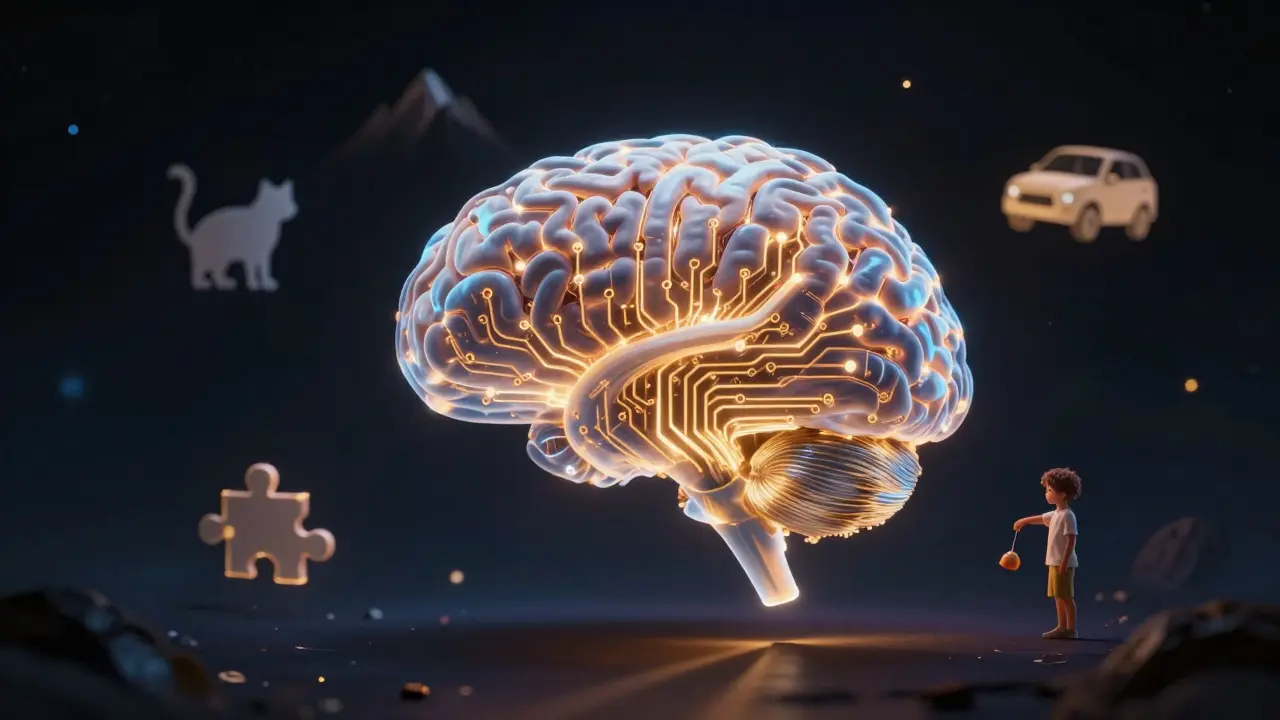
- Mar 1, 2026
- Clayton Shaw
- 0 Comments
Artificial General Intelligence: The Road to Autonomy
Artificial General Intelligence promises machines that think like humans-not just process data. This is what AGI really means, how close we are, and why autonomy changes everything.
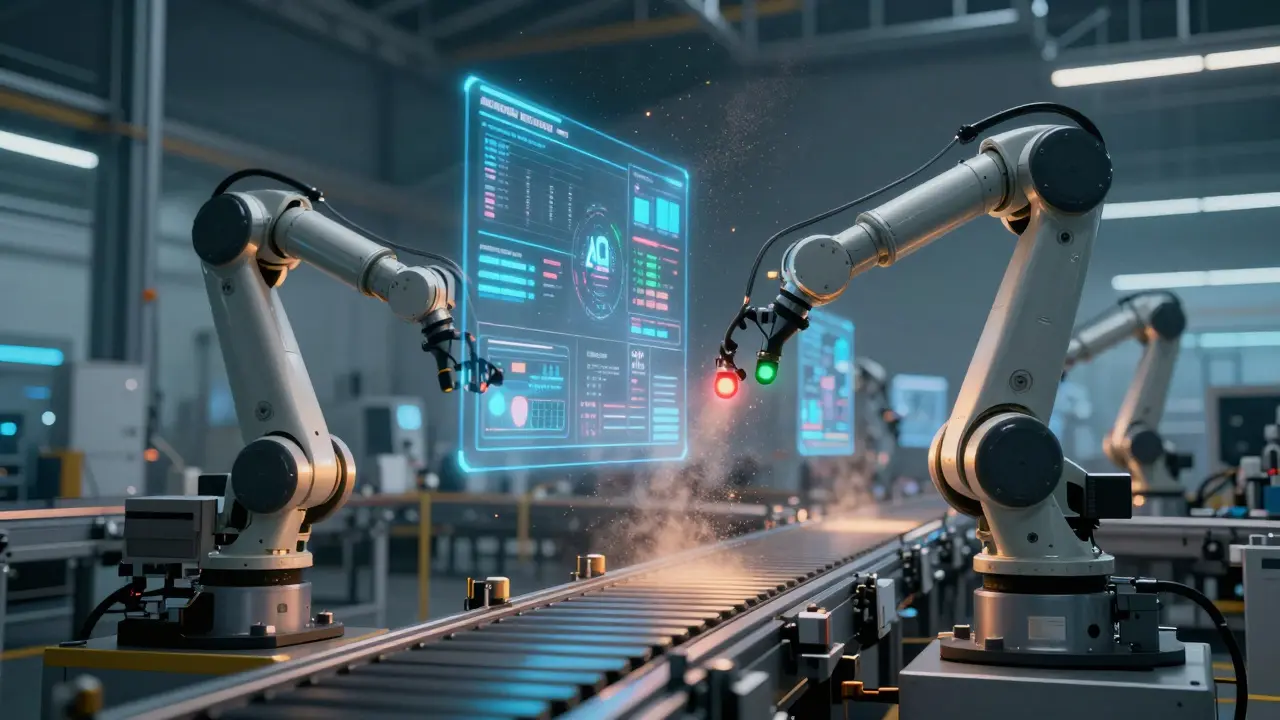
- Feb 15, 2026
- Clayton Shaw
- 0 Comments
How Artificial General Intelligence is Revolutionizing Industries
Artificial General Intelligence is transforming healthcare, manufacturing, finance, and education by learning across domains, adapting in real time, and solving problems no narrow AI could handle. It's not science fiction - it's already here.
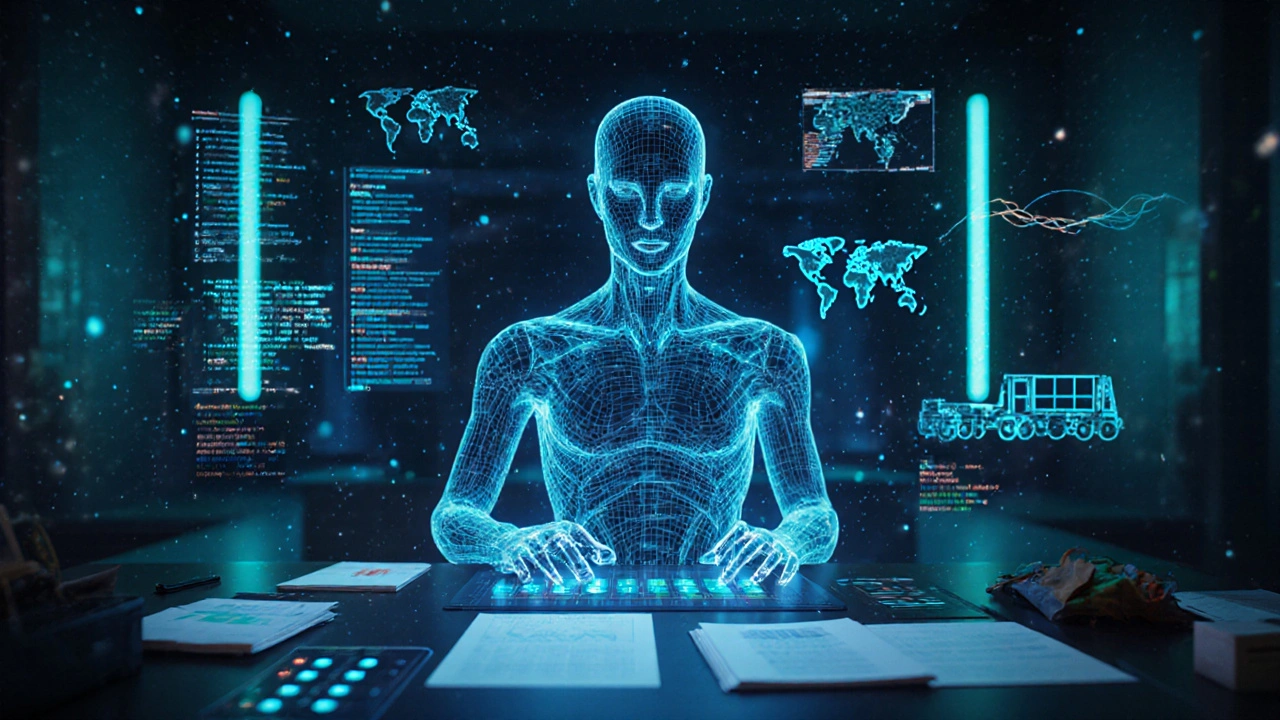
- Nov 2, 2025
- Maxwell Sterling
- 0 Comments
How Artificial General Intelligence is Reshaping the Tech World
Artificial General Intelligence is transforming tech by enabling machines to learn, reason, and adapt like humans. From coding to healthcare, AGI is reshaping how industries operate-and how we work alongside it.
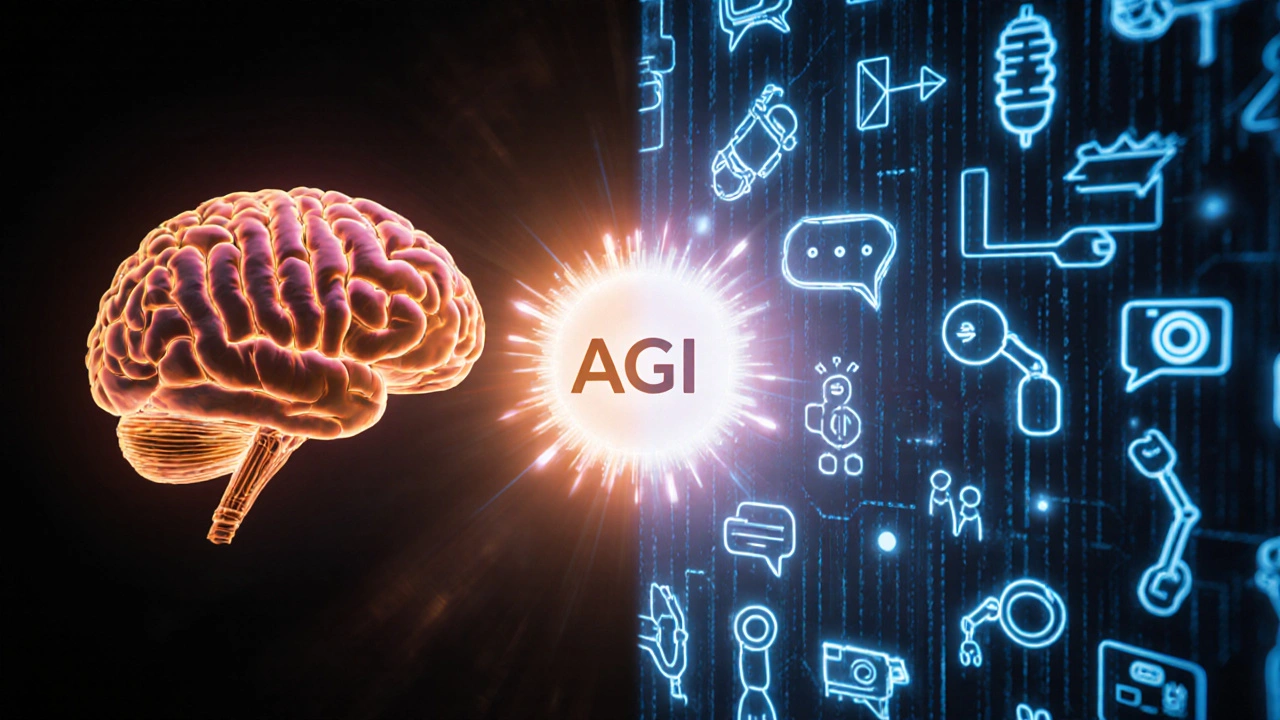
- Oct 21, 2025
- Alaric Stroud
- 0 Comments
Artificial General Intelligence (AGI): The Future of AI Explained
Explore what Artificial General Intelligence is, how it differs from narrow AI, key challenges, timelines, and its impact on society in this comprehensive 2025 guide.
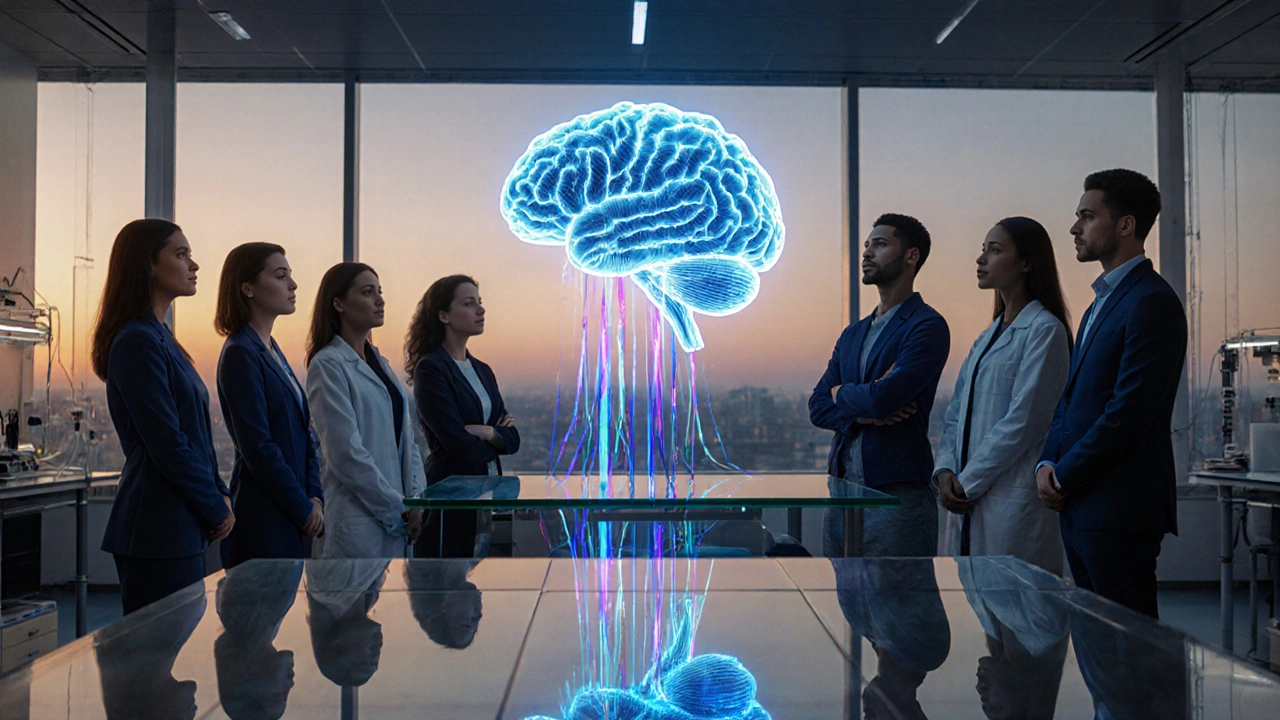
- Oct 12, 2025
- Travis Lincoln
- 0 Comments
Artificial General Intelligence: How the Future Arrived Today
Explore what Artificial General Intelligence (AGI) really means, its technical hurdles, timeline predictions, safety concerns, and how society can prepare for this upcoming shift.

- Apr 22, 2025
- Mark Cooper
- 0 Comments
Artificial General Intelligence: Pros, Cons, and What You Should Know
This article breaks down the real upsides and tough tradeoffs of artificial general intelligence (AGI). You'll see what sets AGI apart from regular AI, the cool advances it promises, and the headaches it could bring. We’ll look at how it might shake up everything from daily routines to entire industries. Expect honest talk about both the gold and the glitches. No sugarcoating or technical jargon, just the facts you actually want.

- Mar 18, 2025
- Maxwell Sterling
- 0 Comments
Understanding Artificial General Intelligence: A Comprehensive Guide
Artificial General Intelligence (AGI) is the next frontier in AI, striving to create machines with human-like cognitive abilities. Unlike narrow AI, which handles specific tasks, AGI aims for adaptability and understanding across various domains. This article dives into what AGI is, the challenges it faces, and its potential impact on society. Discover how close we are to achieving AGI and what it could mean for the future.
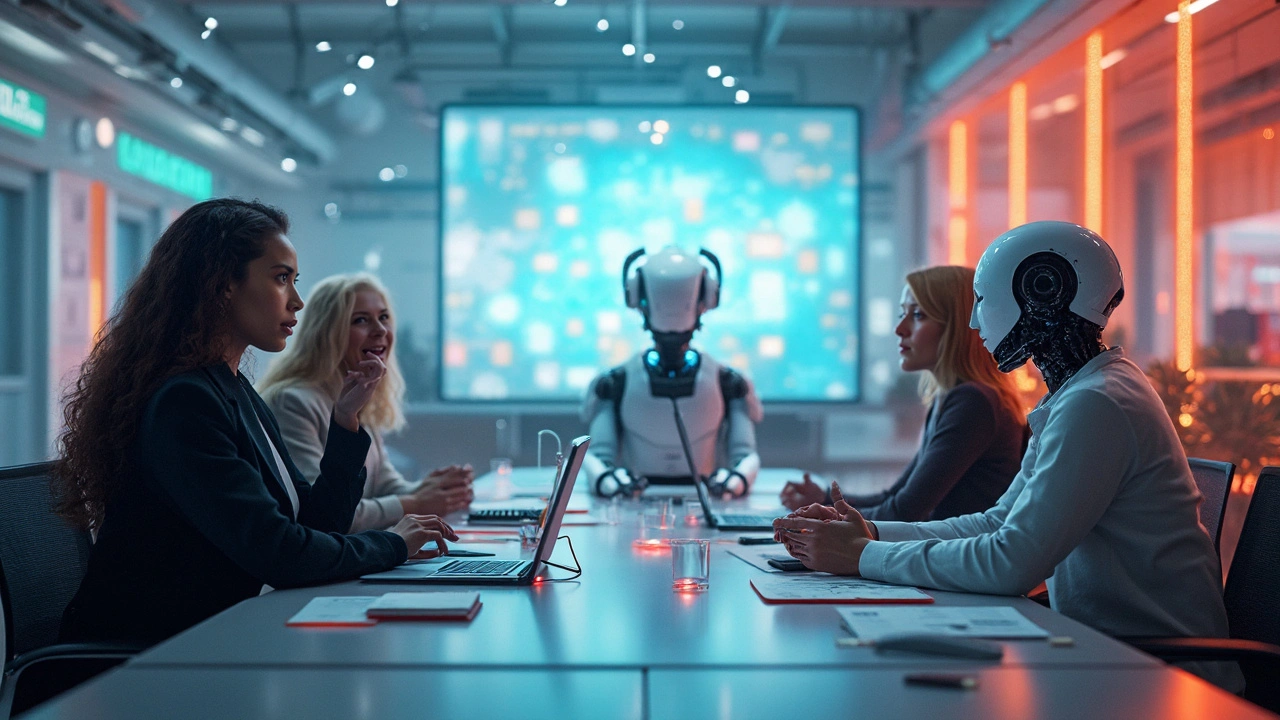
- Mar 2, 2025
- Mark Cooper
- 0 Comments
Artificial General Intelligence: The Apex of AI Exploration
Artificial General Intelligence (AGI) represents the aspiration to create machines that can mimic human intelligence across various tasks. Unlike current AI that excels in specific functions, AGI aims for adaptability and learning beyond pre-defined capabilities. The realization of AGI could transform industries by introducing machines capable of creative problem solving and independent learning. This shift raises questions about potential impacts on society, ethics, and workforce dynamics. Understanding AGI involves exploring the technical challenges and potential societal effects inherent to this advanced form of artificial intelligence.

- Nov 26, 2024
- Maxwell Sterling
- 0 Comments
Exploring the Horizons: Artificial General Intelligence Unveiled
Artificial General Intelligence (AGI) is a leap beyond traditional AI, capable of understanding, learning, and applying knowledge as humans do. This article delves into the potential impacts, fascinating possibilities, and current challenges faced by researchers. As we edge closer to AGI reality, we explore ethical implications, potential risks, and the future of human-machine collaboration. Join us as we unlock the future and ponder how AGI could revolutionize our world.

- Jul 4, 2024
- Jefferson Maddox
- 0 Comments
Artificial General Intelligence: The Future of Technology
Artificial General Intelligence (AGI) is emerging as the next frontier in technology, promising machines that can understand, learn, and apply knowledge across a variety of tasks just like humans. This article dives into what AGI is, explores its potential, discusses the challenges, and offers insights into its future impact on society. Get ready to explore the next big leap in AI and how it might change our world.
